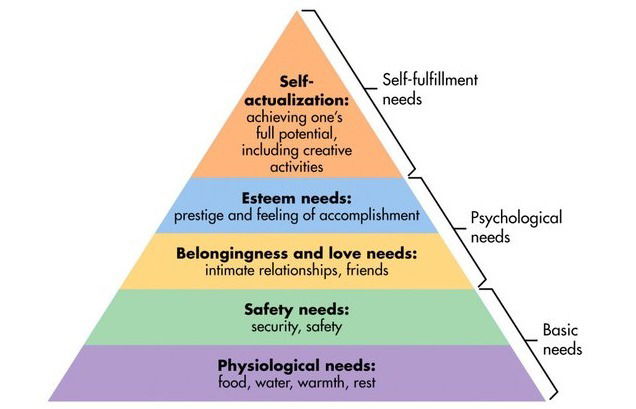COVID-19 , Quarantine - and our basic mental needs

The COVID-19 pandemic has changed our lives in many ways, one of which is the manner in which it has forced us into a state of continued self-isolation.
While the streets are quieter and the air cleaner, there are several observations that need to be made in regards to the impacts of this new medical inspired solitude on our mental health.
Whereas, before we used to take daily interacting and socializing for granted, we have now effectively been reduced to living a shut-in type existence.
Access to other humans has now been restricted, and when permitted , is limited to either immediate family (if we are lucky) or functional interactions such as grocery shopping or buying gas.
In some cases, even within a family, traditional touch with older relatives has been replaced by simulated contact through plexi-glass.
People in public now wear masks and take great pains to avoid each other as they spend time lining up for basic necessities as if in war- time rationing were in effect .
Any degree of natural human-kind friendliness that may have been out there a few months ago is now in short supply and has somehow been replaced by something that is almost akin to raw survival type behavior.
In fact, the very concept of personal space has been completely redefined and anyone who dares to get closer then six feet to another person is liable to either get told off in graphic fashion or receive a $1000 police ticket.
All of the new pandemic regulations somehow feels like an endless bad dream or weird sociological experiment with everyone "in on the experiment" except you.
Given that human are intrinsically social creatures, we now find ourselves left to our own devices with our interactions being reduced to SMS messages, phone calls, social media and Zoom.
In the new social order of things, every day seems like “Christmas day “, with all services and amenities being closed and the only perk being on offer is the option to experience “infinite” family time. This can indeed be disruptive and disorienting , with days of the week blending into one unstructured continuous stream.
Given that there is only so much Netflix , Facebook , CNN and YouTube one can watch, the question of how to fill idle time becomes complex. - Even traditional stress relief activity such as going to the gym or pool have all been taken away.
In the new world, one must actively manage each day and no longer rely on external drivers for structure and content. - Long daily walks have taken on new meaning !
Work is another story , with the new "work from home" norm swiftly removing most of the traditional bonding with colleges that we once had.
Working from home is challenging on the best of days , however throw in highly active children who are no longer in school and it becomes next to impossible. How many of us have barricaded ourselves behind locked doors just to hide from our own offspring during a video call ?
In fact, the current pandemic , in addition to posing a clear and present threat to our health, effectively endangers our fundamental mental well-being at multiple levels:
1. Our basic fundamental need for physical safety –there is a virus out there that can kill us. We can catch it through a cough..so beware of anyone within 6 feet.
2. Our need for love and belonging –the entire family routine has been thrown upside down, with traditional roles being blurred, and families either seeing too much of each other or not seeing each other at all
3. Our sense of self esteem and self-actualization – many of us are in danger of economic hardship, as well as possible job loss, we are all frustrated and feel helpless
Combine all of this with the threat of death, not only for yourself and the ones you love and you indeed have the perfect storm.
We are living through unprecedented times that will surely be recorded in history books. A hundred years from now , the year 2020 will be remembered as the year of the Virus.
Today , wishful thinking aside, no one really knows how this thing will play out.
After all, the last pandemic of this type was the Spanish Flu of 1918 and this virus manifested itself in three distinct waves and stayed active till 1920.
It should also be noted that the Spanish Flu did not start in Spain and it took place well before international air-travel effectively connected any point on earth within a 20 hour time frame.
There is no easy remedy to all of this, and as social distancing rules evolve and change we are all managing the best we can.
As we travel down uncharted paths towards a "new normal", talking and sharing feelings can be extremely beneficial for our continued mental health.
In our social isolation, with our masks and sanitizers, we are not as alone as we think. - Contact us if you would like to schedule a session with a professional psychologist to discuss.